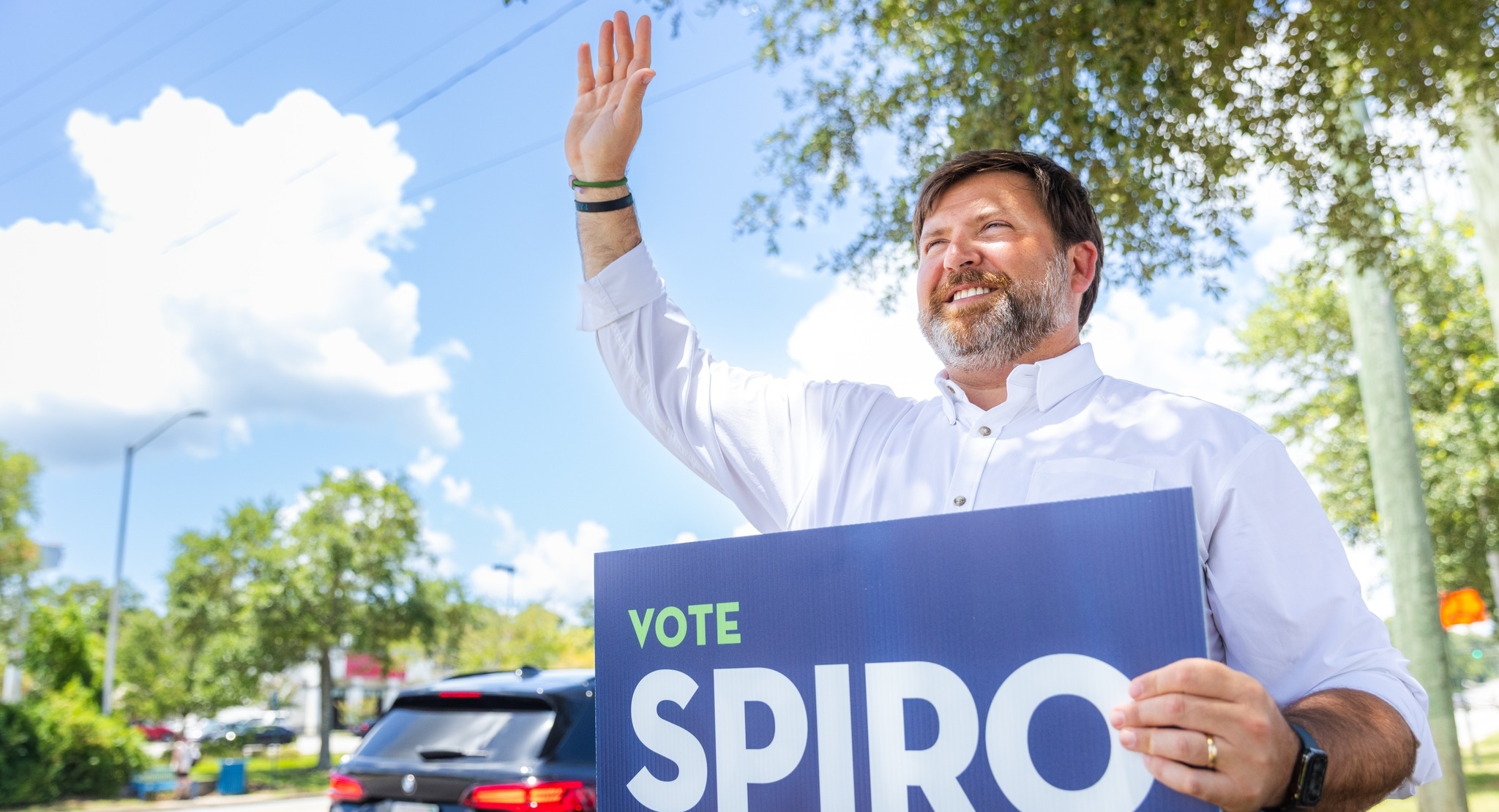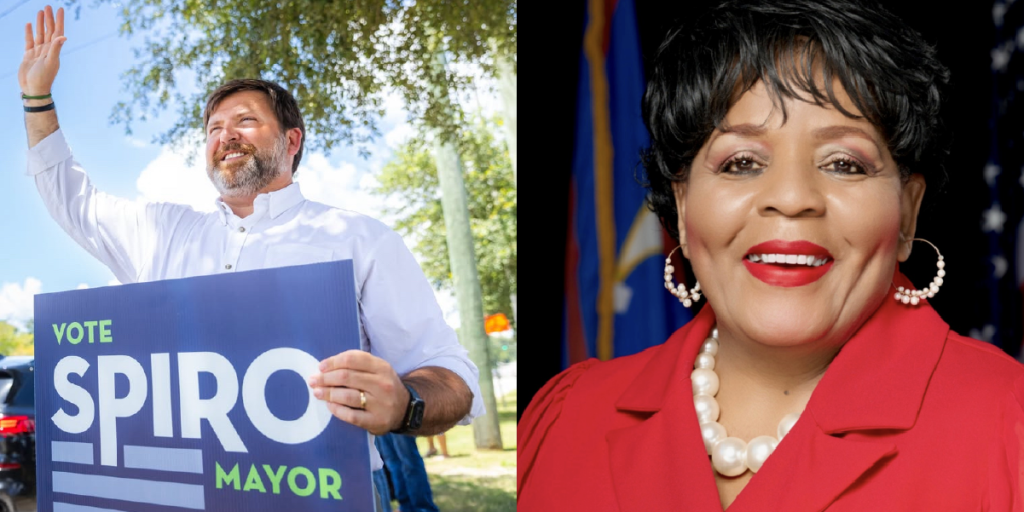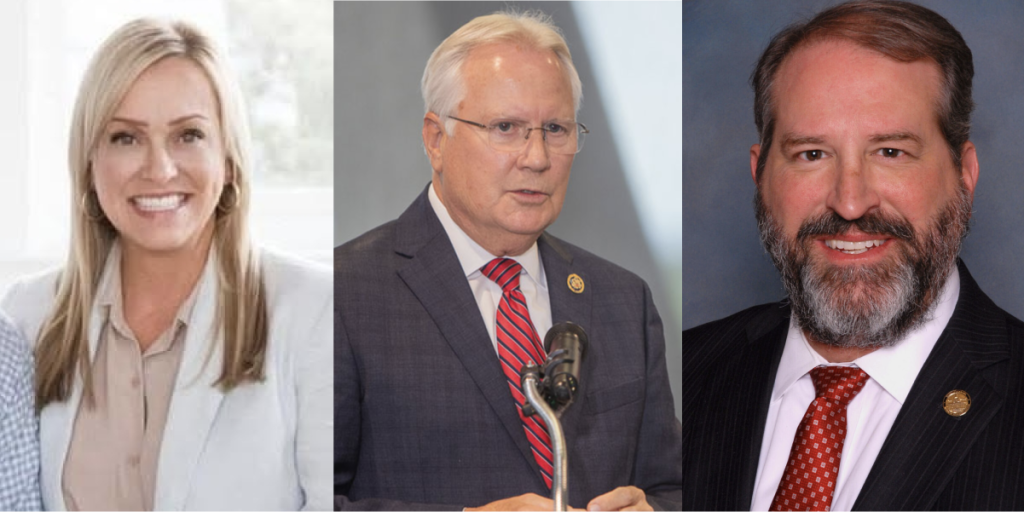It’s fitting that Sandy Stimpson passed a baton to Spiro Cheriogotis after the former judge won the Mobile mayoral runoff election earlier this week.
Not only did the mayor-elect enjoy the backing of the incumbent throughout his campaign, Cheriogotis ascended to Mobile’s highest office by replicating the strategy that propelled Stimpson to three terms: running up the score with white voters.
Cheriogotis defeated State Rep. Barbara Drummond (D-Mobile) by an unofficial tally of 25,106 votes to 23,715, but like his predecessor, he struggled to make inroads in majority-black communities — Cheriogotis performed worst in the eight precincts where African-Americans make up 80% or more of the voting-age population.
Those precincts, primarily concentrated in the city’s east, supported Drummond by overwhelming margins; in the 96-percent black Figures Park Community Center precinct, over 1,400 ballots were cast for Drummond compared to fewer than 100 for Cheriogotis.
Of the city’s 37 precincts, Drummond carried a total of 19, all but three of which have a voting-age population that is over 50% black.
The city’s black voters have long participated in citywide elections at a lower rate than its white voters — for Drummond to have a chance at victory, she either needed to capture a sizable number of white votes or energize Mobile’s black communities.
She succeeded at the latter feat. Although runoff elections are notoriously susceptible to turnout issues, voters in Mobile’s majority-black precincts got to the polls at a greater volume than they did during the general election, an encouraging sign for Drummond.
Unfortunately for the State Representative, turnout increased even more dramatically in Mobile’s majority-white precincts, of which Cheriogotis won all.
Dauphin Way Baptist Church, Cheriogotis’ three-fourths-white home precinct, saw a city-high turnout jump of over 400 ballots.
Roughly 90% of its 2,500-plus voters lent their support to the former judge.
The same effect was observed across Mobile: of the eight precincts that saw the greatest increases in turnout during the runoff, Cheriogotis won seven, all of which are majority-white.
Despite the racially polarized result, which is in line with Mobile’s past citywide elections, it was just a month ago it seemed as though the voting patterns of the city’s electorate might be shaken up. Former Mobile police chief Paul Prine, who is white, drew attention after he turned in a strong performance with both white and black voters during the August 26th general election.
Because Prine failed to advance to the runoff, his voters were forced to make a fresh choice.
According to conventional wisdom, Prine’s black supporters would migrate to Drummond, and his white supporters would migrate to Cheriogotis. However, matters were complicated by the fact that Prine engaged in a public feud with Stimpson last year.
Going into the runoff, it was unclear to what extent Prine voters would back the Stimpson-backed Cheriogotis.
But as Tuesday night’s results began to trickle in, it became apparent that the incumbent’s endorsement would not hamper Cheriogotis.
Although most black Prine voters indeed switched allegiances to Drummond, Cheriogotis attracted white Prine supporters at a sky-high clip.
In the five precincts that most vigorously supported Prine in August, all of which are majority-white, Cheriogotis gained an average of 39 percentage points against his general election performance. Drummond picked up an average of 11.
Cheriogotis’ biggest gains of the race came at Prine strongholds Creekwood Church of Christ and Woodridge Baptist Church, two recently-annexed precincts situated along the city’s western border.
Mobile’s newest residents helped swing the election in Cheriogotis’ favor, selecting him on over 70% of their ballots after giving him just 25% of the vote last month. Although Dauphin Way Baptist Church saw the largest turnout jump, it was in fact Creekwood Church of Christ and Woodridge Baptist Church where Cheriogotis picked up the most votes.
Unsurprisingly, Cheriogotis also performed well among former supporters of Mobile County Commissioner Connie Hudson, whose general election coalition was less diverse, centered around the heavily-white western Mobile precincts that adjoin her County Commission district.
Although Mobile’s mayoral race was the city’s most competitive in over a decade, and partisan rhetoric heated up towards the campaign’s end, it was ultimately decided by familiar factors — voters coalesced along racial lines, and a turnout advantage secured Cheriogotis’ seat in Government Plaza.
Charles Vaughan is a contributing writer for Yellowhammer News.













